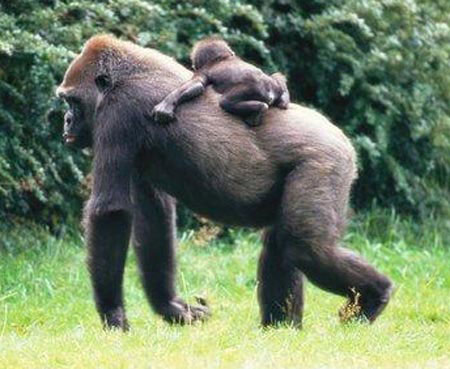The report by an international team of scientists said that malaria is now spreading among humans is more likely to come from gorillas, not from chimpanzees as we previously thought.

It is more likely that gorillas spread malaria to humans. (Internet photo)
International scientists have collected faeces of about 2,700 gorillas, chimpanzees and tiny chimpanzees.
After analyzing the malaria parasitic genome in their feces, scientists found that the malaria parasite circulating popularly in human society now has a very close relationship with the malaria in the feces of ' western gorillas .'
Meanwhile, the malaria parasite in chimpanzees is very far-fetched with the malaria parasite in the subspecies of western gorillas - a genus of gorillas, mainly living in Central Africa and West African.
In addition, the study found more mutant genes caused by malaria parasites in gorillas than the number of mutant genes in humans. This means that gorillas may be the ' promised land ' of malaria parasites, ie human malaria parasites originating from gorillas.
Scientists believe that malaria-transmitted gorillas are a " single transmission ," ie, before being transmitted to human society, malaria parasites in gorillas are only transmitted. infected to someone or a part of someone.
Scientists will continue to analyze more specifically the differences between human malaria parasites and gorillas. According to scientists, it is likely that human malaria parasites and gorillas are all of the same type.
 Animal 'suffering' after hibernation
Animal 'suffering' after hibernation Why do goats climb well?
Why do goats climb well? Scientists were surprised to see chimpanzees eating turtles
Scientists were surprised to see chimpanzees eating turtles Giant catfish died deadly due to drought in Thailand
Giant catfish died deadly due to drought in Thailand